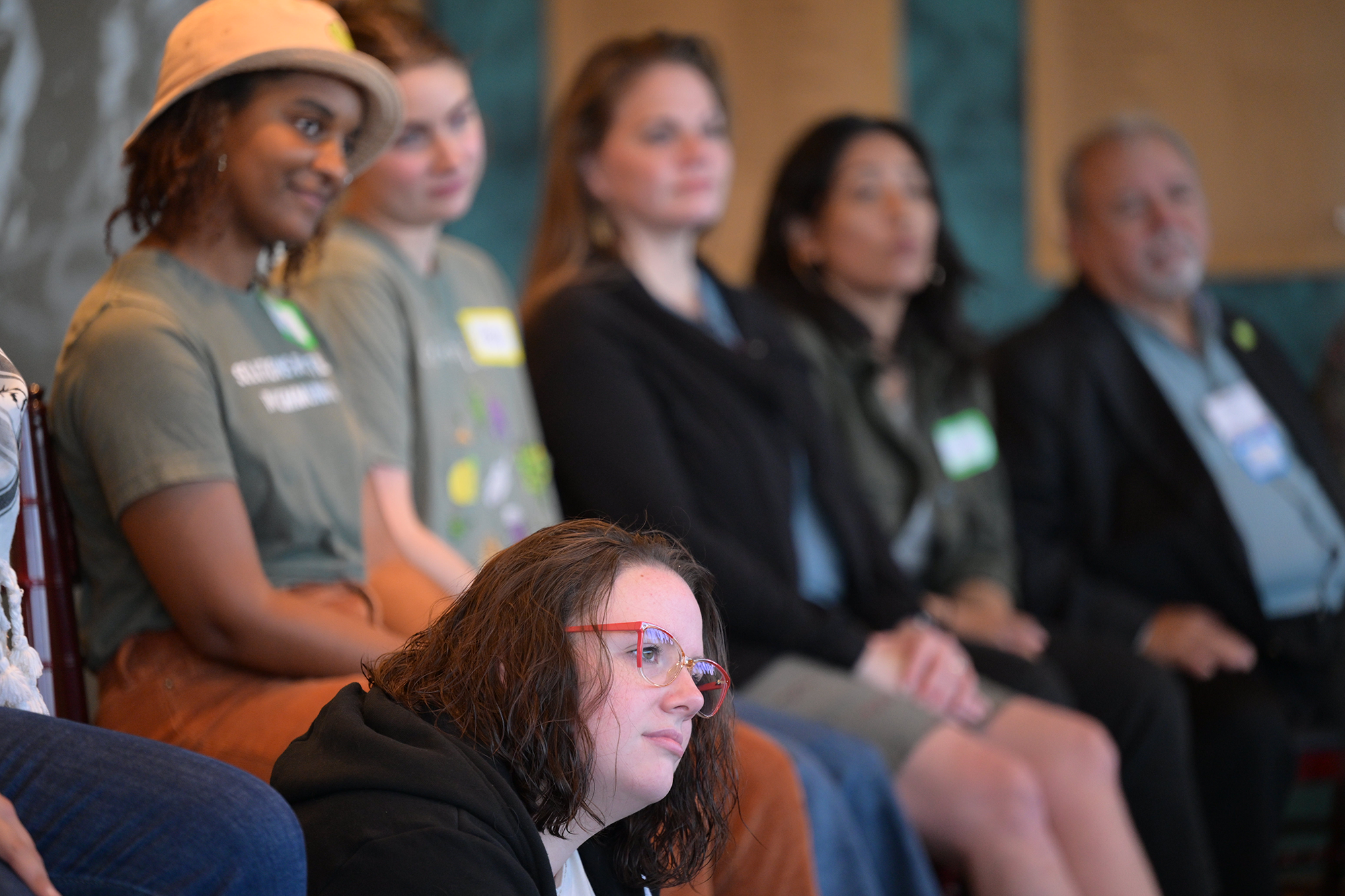
In this week’s newsletter, Mike Mercer suggests that, by working together, cooperatives have the capacity to help people move from just “getting by” to “getting ahead”—an opportunity that is universally compelling.
“The idea that co-ops could occupy center stage for a collaborative getting-ahead strategy that provides tangible solutions for people and businesses across the entire scope of well-being would be transformational,” Mercer writes. Read the full issue of Principle 6 Newsletter below to learn more.
And while you’re thinking about “cooperation among cooperatives,” take a moment to consider how you and your cooperative practice this principle. NCBA CLUSA is on a mission to document Principle 6 collaborations across the country so we can identify trends, document best practices and share this knowledge with you—our fellow cooperators!
Share your example of Principle 6
Principle 6 Newsletter – From “Getting By” to “Getting Ahead”
September 23, 2021
These elements are the currency of a life that matters. They do not include every nuance of what’s important in life, but they do represent five broad categories that are essential to most people.
- The first element is about how you occupy your time or simply liking what you do every day: your Career Well-Being.
- The second element is about having strong relationships and love in your life: your Social Well-Being.
- The third element is about effectively managing your economic life: your Financial Well-Being.
- The fourth element is about having good health and enough energy to get things done on a daily basis: your Physical Well-Being.
- The fifth element is about the sense of engagement you have with the area where you live: your Community Well-Being.
While 66 percent of people are doing well in at least one of these areas, just 7 percent are thriving in all five. – Rath & Harter, “The Five Essential Elements of Well-Being,” Gallup, 5-4-10
Ultimately community vitality is that spark that enables a community to move from “getting by” to “getting ahead” (Dale & Onyx, 2005). Any measure of vitality, therefore, requires consideration of those elements that provide first for the needs of the community and then provide the ability to engage with higher functions of creativity, adaptation and innovation. – Dale & Ling, “Community Vitality Index Tool-Some Preliminary Thinking,” 4-30-11

Some years back, Georgia credit union leaders discovered that other people-centered organizations were providing assistance that was beneficial to credit union members. The state had a program to help disabled people with assistive technologies. The Georgia Micro Enterprise Center was teaching entrepreneurs how to start small businesses. The Atlanta Consumer Credit Counseling Service was completing reorganization plans outside of bankruptcy for thousands of Georgians. There were also cooperative housing entities and non-profit hospitals that came into view. The idea surfaced at some point that credit unions could combine effort with these organizations so that members/clients/customers would have a resource that would better help them “get ahead” in their lives.
Eventually, it was decided to form the Getting Ahead Association. Remnants of its architecture still exist online. The original idea was that the people being served by any of the sponsoring organizations would join for a nominal fee ($5) and obtain access to a site that would enable them to learn about and find helpful organizations committed to their success. The information would be arranged around three prompts: 1) What would you like to do? (buy a used car, for example), 2) Here’s what you need to know before you do it (things like fair price and maintenance history), and 3) Here are some organizations that you can trust to do it with (a credit union and its car buying service). The first designs contemplated a consumer self-service model. Later, the idea migrated to focus on support information available to member-facing practitioners at the sponsoring institutions. Neither construct achieved meaningful impact, largely due to inadequate attention and investment from the sponsoring organizations.
The Getting Ahead Association was conceived and implemented without any awareness of another “getting ahead” initiative that was also launched in the early 2000s. The Getting Ahead Program was developed by Philip DeVol and others in connection with their work outlined in the book, Bridges Out of Poverty. Today, many cities use the Getting Ahead Program in their initiatives to build stronger communities. Examples include Erie, PA; St Petersburg, FL; and Midhurst, ON. Students are highly complementary of the educational components. Some highlighted the emotional distinction between getting by and getting ahead. Others characterized the initiatives as being constructive to stronger communities. The opportunity to get ahead is compelling to all.
Being better off is something that individuals, businesses and communities all aspire to.
The objective here is not to advocate for either of the initiatives, the Association or the Program. But there may be opportunity in the visual of moving from “getting by” to “getting ahead.” Being better off is something that individuals, businesses and communities all aspire to. Just getting by is the all-too-often appraisal of present-day circumstances. For too many, the feeling of falling behind is the characterization of present and future. Getting ahead requires intrinsic motivation and determination. Getting by can be blamed on exogenous factors. Misguided government, greedy businesses, unfair employers, prejudice—the system.
Co-ops of all types promise better times ahead. Worker co-ops promise career well-being. Home care co-ops promote physical well-being. Day care co-ops contribute to community well-being. Credit unions, of course, promise some degree of financial well-being. It is probably safe to assert that any successful co-op can claim meaningful contributions in one or two of the five essential areas of well-being outlined at the front of this letter. But is that enough? Should co-ops be aiming higher?
Co-ops of all types promise better times ahead… But is that enough? Should co-ops be aiming higher?
If co-ops in a community agreed to collaborate with the other non-extractive, apolitical and people-centric organizations in the area, there could be a promise to help community citizens (people and their small businesses) get ahead in all five areas of well-being. The holistic construct might need to be different. Whatever the construct, it is hard to imagine that health, employment, knowledge, money, etc. would not be present in some fashion. The key thing is that co-ops could develop the capacity to collectively enable upward mobility. By recommending and supporting each other, co-ops could help people move from getting by to getting ahead.
The key ingredient for a collaborative getting-ahead initiative is a willingness at the receiving end to embrace self-initiative. Self-help. Without it, there is no chance for co-ops or any other form of organization to lift people above their present station in life. Beyond that, a getting-ahead initiative cannot get off the ground without transformational vision and a conviction that widespread collaboration will lead to sustainable differentiation for the participating co-ops. The work would be difficult, and the investments would have long payoff horizons. Structures would have to be created to house the collective efforts that would be involved. Capable leaders would need to be accountable for the initiative.
A getting-ahead initiative cannot get off the ground without transformational vision and a conviction that widespread collaboration will lead to sustainable differentiation for the participating co-ops.
The purpose here is not to design, but to propose a transformational idea. In any business, doing things the same way is eventually a recipe for irrelevance. The idea that co-ops could occupy center stage for a collaborative getting-ahead strategy that provides tangible solutions for people and businesses across the entire scope of well-being would be transformational. The willingness of co-ops to collaborate across sectors to discuss that possibility is something that will be explored soon.
Stay tuned,
Mike


